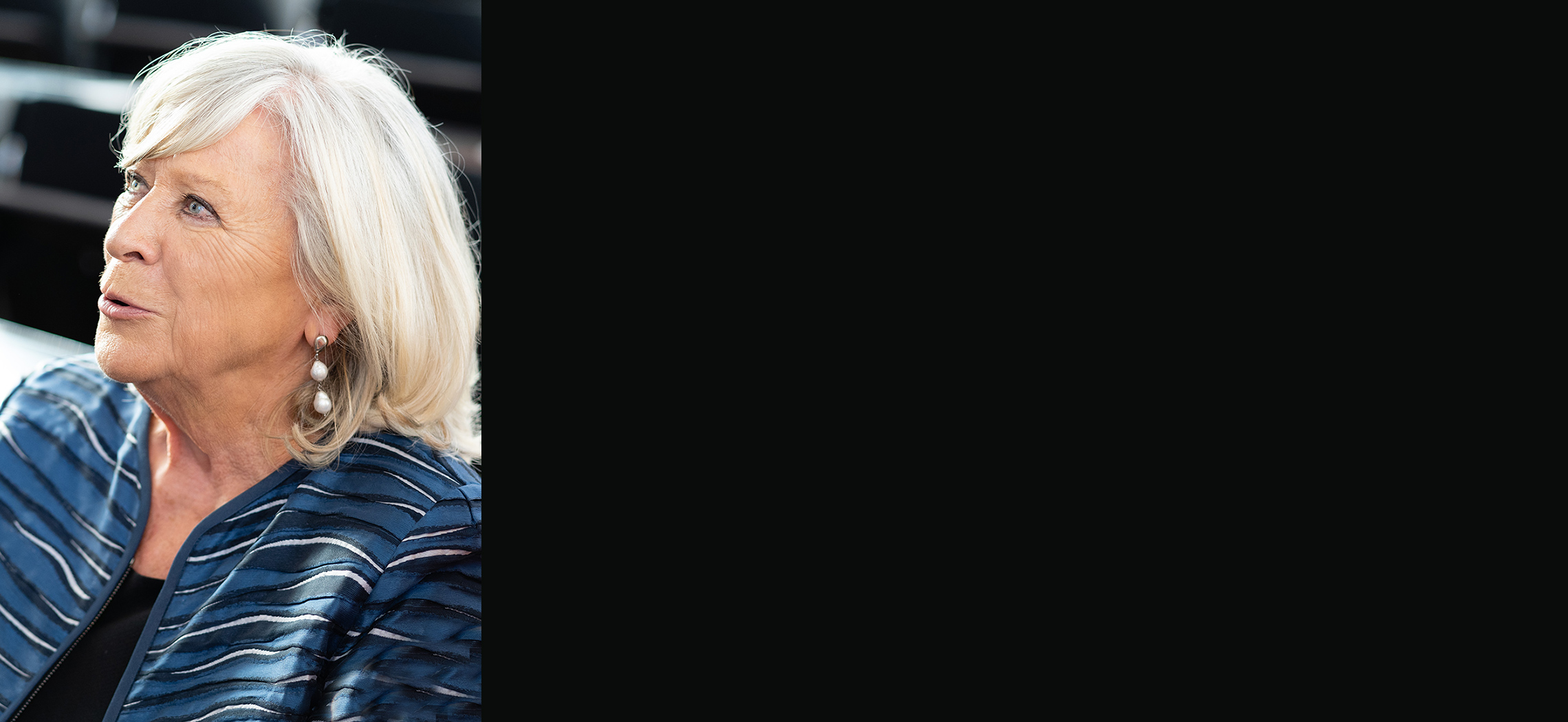A PORTRAIT OF FILMMAKER MARGARETHE VON TROTTA
Margarethe von Trotta © Alexander VejnovicMargarethe von Trotta is one of the first women to stand behind the camera at a time when this was not only uncommon, but also still an eternal struggle. However, she learns to assert herself and becomes a film director of world renown – as the only woman in the German auteur cinema of the late 1970s. This year saw Margarethe von Trotta, who was born in Berlin at the height of the war in 1942, celebrating a big anniversary when she turned 80 in February.
Von Trotta wanted to make films, but had to wait a long time to do so because she is a woman. Her passion for cinema begins in the Paris of the 1960s. She becomes an actress – but for her that’s just a detour in order to get into films. She makes films with well known German directors such as Rainer Werner Fassbinder, Herbert Achternbusch and is soon also working with Volker Schlöndorff, with whom she starts writing screenplays together before they co-direct THE LOST HONOUR OF KATHARINA BLUM in 1975.
In 1978, she presents THE SECOND AWAKENING OF CHRISTA KLAGES, her first solo film as a director, at the Berlinale, with the film subsequently winning the Silver Film Ribbon at the German Film Awards. From then on, von Trotta follows her own path, not only rising to the courageous challenge of making films as a woman, but consistently making women the subject of her films. A fighter herself, she is a portraitist of combative women who face the fractures and impositions of their respective times with intelligence, personal strength and a will to change political conditions. With her films, von Trotta prepares the ground for a change of thinking in society. She puts faith in her unconscious, absorbs these impulses and transforms them into art. This is how she has created true masterpieces that raise decidedly emancipatory points of view.
In 1981, she is the first female director in Europe to receive the Golden Lion for her third feature film MARIANNE & JULIANE at the Venice International Film Festival. Based on the lives of Christiane and Gudrun Ensslin, von Trotta processes the biographies of the sisters here into an individual discourse about finding identity in politicisation and social change. After Venice, the film travels around the world and establishes von Trotta as a director of international standing.
After the death of Rainer Werner Fassbinder, she is approached to direct his project ROSA LUXEMBURG (1986) – because she had known him and because she is a woman. This is the first time she’s heard of the latter being an advantage. But when she shows the communist as both a pugnacious politician and an emotional woman, there are awards, but also some harsh criticism. In fact, von Trotta has only ever focused on stories about contemporary history – from women’s point of view – uncovered contradictions in society as reflected in her female characters.
In 2012, the sensitivity to perceived injustice inspires her to make a film reflecting the intellectual indomitability of HANNAH ARENDT. She depicts the life and work of the Jewish, German-American philosopher, theorist and journalist who left Germany in 1933 and later focused on National Socialism as well as fundamental questions about ethics, power and the rule of law in her works.
One might associate von Trotta primarily with a series of biographical films about female role models, but her filmography reveals so much more, such as her first documentary, SEARCHING FOR INGMAR BERGMAN, which premiered at the Festival de Cannes in 2018. She cites the Swede‘s art as a great inspiration for her style of filmmaking and dedicates her 25th film to him.
More films will follow because von Trotta is celebrating her 80th birthday with unwavering productivity. This spring will see her shooting her new film BACHMANN & FRISCH – about the love affair between the writers Ingeborg Bachmann and Max Frisch. The film promises to be both an intimate character study as well as a biopic about two great figures from the history of literature.
Margarethe von Trotta is one of the most successful and prominent German women filmmakers, someone who is not only admired, but also loved for her perseverance, consistency and the ability to stay true to herself.
Carmen Böhm

